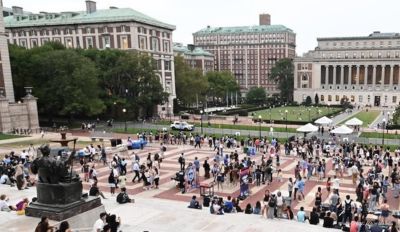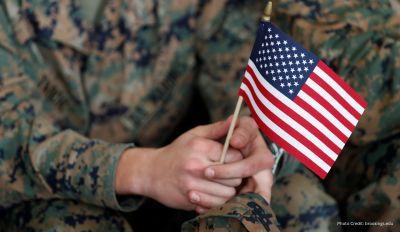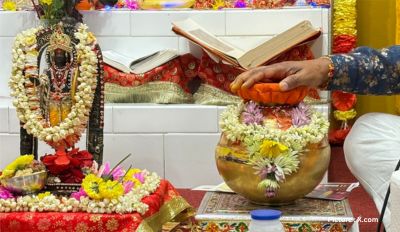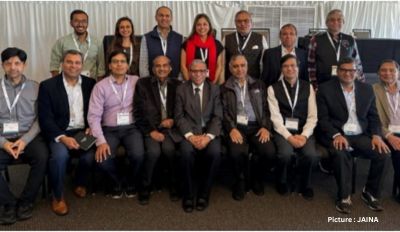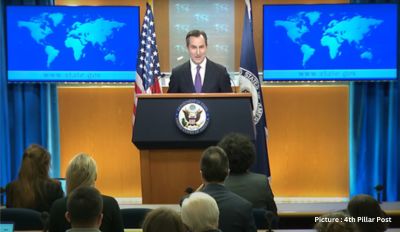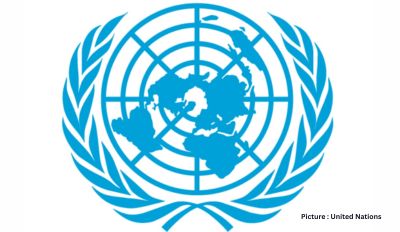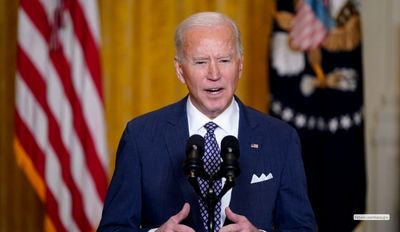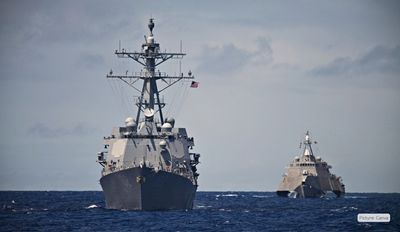During Pope Francis’s four-day tour of Iraq across six cities is Francis’ first trip outside Italy since the coronavirus pandemic began, the Pontiff touched down in Baghdad on Friday, March 5th where he was met by Iraqi Prime Minister Mustafa al-Kadhimi. In a speech after being welcomed by Iraqi President Barham Salih, Pope Francis said he was very pleased to come to Iraq, which he described as the “cradle of civilization.” In his address to the nation, ravaged by two decades of war, violence and deaths, he said, “May the clash of arms be silenced… may there be an end to acts of violence and extremism, factions and intolerance!” he said.
“Iraq has suffered the disastrous effects of wars, the scourge of terrorism and sectarian conflicts often grounded in a fundamentalism incapable of accepting the peaceful coexistence of different ethnic and religious groups.”
Francis later met with clerics and other officials at a Baghdad church that was the site of a bloody 2010 massacre. He returned to Baghdad on Saturday afternoon and celebrated Mass at the Chaldean Cathedral of Saint Joseph.
About 10,000 Iraqi Security Forces personnel are being deployed to protect the Pope, while round-the-clock curfews are also being imposed to limit the spread of Covid. Iraq’s PM Mustafa al-Kadhimi greeted him at the airport, with a red carpet, Iraqis in national dress and songs from a largely unmasked choir. Hundreds of people lined the airport road as the Pope’s convoy, heavily chaperoned by police motorcycles, left for the city.
Visiting Ur, the ancient Iraqi city where Jews, Christians and Muslims believe their common patriarch Abraham was born, Pope Francis denounced extremism as a “betrayal of religion.” The Pope visited Ur on Saturday, the second day of the first ever papal visit to Iraq. Addressing a meeting of inter-faith leaders, Francis condemned the violence that has plagued Iraq in recent years and called for friendship and cooperation between religions.
“All its ethnic and religious communities have suffered. In particular, I would like to mention the Yazidi community, which has mourned the deaths of many men and witnessed thousands of women, girls and children kidnapped, sold as slaves, subjected to physical violence and forced conversions,” he said.
Covid and security fears have made this his riskiest visit yet, but the 84-year-old insisted he was “duty bound”. He also said Iraq’s dwindling Christian community should have a more prominent role as citizens with full rights, freedoms and responsibilities. He is hoping to foster inter-religious dialogue – meeting Iraq’s most revered Shia Muslim cleric – and will celebrate Mass at a stadium in Irbil in the north.
Francis also praised the recovery efforts in Northern Iraq, where ISIS terrorist destroyed historical sites, churches, monasteries and other places of worship. “I think of the young Muslim volunteers of Mosul, who helped to repair churches and monasteries, building fraternal friendships on the rubble of hatred, and those Christians and Muslims who today are restoring mosques and churches together,” he said.
Pope Francis delivered his speech at Our Lady of Salvation. “We are gathered in this Cathedral of Our Lady of Salvation, hallowed by the blood of our brothers and sisters who here paid the ultimate price of their fidelity to the Lord and his Church,” the pontiff said.
The speech calling for cooperation between religions came just hours after the Pope held a historic meeting with revered Shia Muslim cleric Grand Ayatollah Ali al-Sistani in the holy city of Najaf. The 45-minute papal meeting with the 90-year old al-Sistani — who rarely appears in public — represented one of the most significant summits between a pope and a leading Shia Muslim figure in recent years.
During the meeting, broadcast on al-Iraqiya state TV, al-Sistani thanked Francis for making an effort to travel to Najaf and told him that Christians in Iraq should live “like all Iraqis in security and peace, and with their full constitutional rights,” according to a statement released by the Grand Ayatollah’s office.
The Pope in turn thanked al-Sistani and the Shia Muslim community for “[raising] his voice in defense of the weakest and most persecuted, affirming the sacredness of human life and the importance of the unity of the Iraqi people,” according to a statement from the Holy See.
Iraq has imposed a total curfew for the entirety of the four-day papal visit to minimize health and security risks. Francis is scheduled to leave Iraq on Monday.
Francis has met with leading Sunni cleric Grand Imam Sheikh Ahmed al-Tayeb on several occasions in the past, famously co-signing a 2019 document pledging “human fraternity” between world religions.
Pope Francis, during his historic visit to Iraq, addressed an interfaith gathering of Iraq’s religious and ethnic groups in Ur, said to be the birthplace of Abraham, the common patriarch for Jews, Christians and Muslims. He drove home the need for respect and unity, and he used the opportunity to condemn violent religious extremism.
Pope Francis traveled to the ruins of the ancient city of Ur, considered the cradle of civilization, to remind people that what binds them is more powerful than what divides. Faithful from the Christian, Muslim, Yazidi and Mandean communities were present Saturday. The pope reinforced his call for inter-religious tolerance and fraternity during the first-ever papal visit to Iraq, where religious and ethnic divisions and conflict have torn apart the social fabric for decades.
Indeed, the Christian population in the Middle East has been falling: The Christian share of the overall population in Egypt, Iraq, Israel, Jordan, Lebanon, Syria and the Palestinian territories decreased from 10% in 1900 to 5% in 2010, according to a Pew Research Center estimate published in 2014. Christians in the region tend to be older than Muslims, have fewer children and are more likely to emigrate — and that was before widespread persecution of Christians in northern Iraq and Syria between 2014 and 2017 by the group that calls itself the Islamic State.
In Iraq specifically, Christians made up less than 1% of the population as of 2010, according to Pew Research Center estimates. Among Christians in Iraq at that time, an estimated 41% were Catholic, 41% were Protestant and 17% identified with Orthodox Christianity.
Pope Francis’ trip to Iraq this weekend has been described by the Vatican as an effort to encourage the Arab country’s dwindling Christian community and strengthen ties with Muslims.



